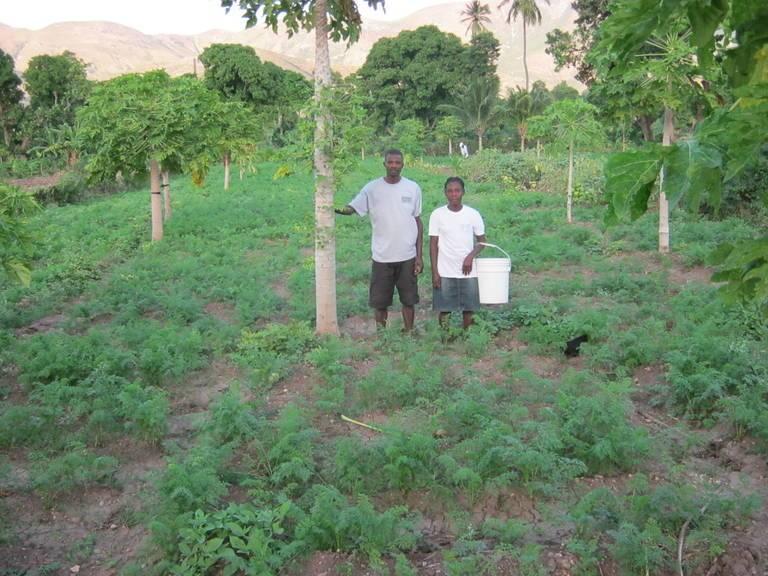
Cotton production had largely disappeared from Haiti over the past three decades, but in recent years, a coalition of companies and non-profits has striven to bring the industry back to the impoverished nation. Last month, Timberland and the NGO Smallholders Farmers Alliance (SFA) announced they have reintroduced cotton as not only a way to help revitalize the economy, but to also claw back against ongoing deforestation that has contributed to the country’s stubborn poverty.
Timberland’s interest in Haiti dates back to the beginning of this decade, when then-CEO Jeff Swartz decided Timberland would contribute $1 million to local efforts in order to turn deforested land into renewed forests and orchards. To that end, SFA has adopted an agro-forestry model to boost both cotton production and forest canopy across the country of 11 million people.
Farmers, who in Haiti are generally husband-wife teams, will earn cotton seeds, agricultural tools and training as they plant trees. In turn, Timberland will help support these efforts by its promise to purchase up to one-third of its annual global cotton purchases from Haiti. SFA expects this social enterprise model to result in 25 million trees planted by 2022 while 34,000 farmers (or 17,000) farms benefit from this program. The Timberland-SFA alliance also has a women’s empowerment component, as women farmers will also be eligible to participate in microfinance, business training and leadership programs.
The company has also said that Vans, which along with Timberland is owned by VF Corporation, will also support this program financially during its first year. Vans is among other VF companies, such as The North Face, that have adopted anti-forestry and sustainable development programs in recent years as part of their corporate responsibility agendas. Meanwhile, Timberland has worked with other organizations, such as Thread, to boost economic opportunities across Haiti while reversing the country’s environmental degradation that the 2010 earthquake exacerbated.
Both organizations leading this cotton farming program in Haiti are working on other projects to improve the prospects for Haiti’s citizens, where per capita income of $1,800 ranks just above countries such as Sierra Leone and South Sudan. SFA is also working with Switzerland-based Research Institute of Organic Agriculture (FiBL), in order to gauge other agriculture opportunities within Haiti. Coffee and cacao, for example, are two crops that have a long history in Haiti, but have been largely overlooked during the earthquake’s aftermath. Organic produce also has the opportunity to scale across Haiti due to the advocacy of organizations such as the Trees that Feed Foundation.
For now, however, much focus has been on cotton, as it is a commodity that has no lack of buyers – especially since more apparel companies are making commitments to source more responsibly-grown and sustainable cotton. Timberland, for example, has promised that by the end of this decade, all of the cotton for its clothing and accessories will be sourced from Better Cotton Initiative growers, organic farms or from within the U.S.
Image credit: SFA

Leon Kaye has written for 3p since 2010 and become executive editor in 2018. His previous work includes writing for the Guardian as well as other online and print publications. In addition, he's worked in sales executive roles within technology and financial research companies, as well as for a public relations firm, for which he consulted with one of the globe’s leading sustainability initiatives. Currently living in Central California, he’s traveled to 70-plus countries and has lived and worked in South Korea, the United Arab Emirates and Uruguay.
Leon’s an alum of Fresno State, the University of Maryland, Baltimore County and the University of Southern California's Marshall Business School. He enjoys traveling abroad as well as exploring California’s Central Coast and the Sierra Nevadas.














